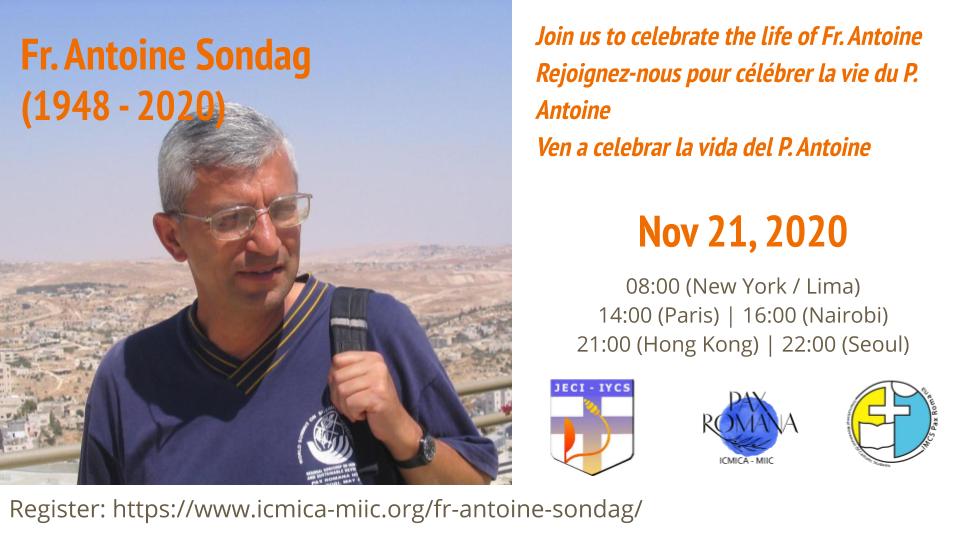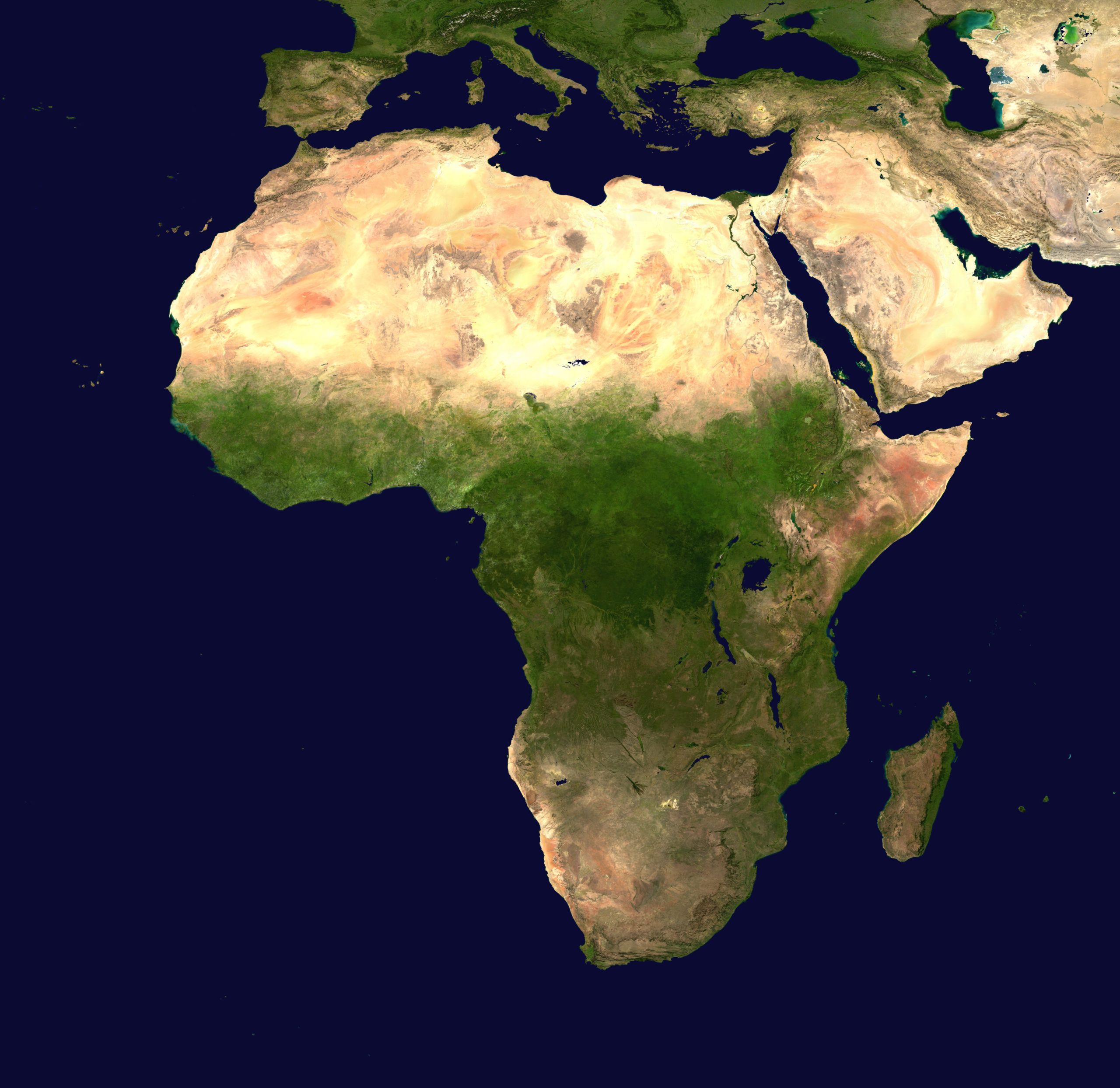Spirituality of Pax Romana: challenges and perspectives for the Catholic Professionals – ICMICA Africa July Retreat
Every month, the ICMICA Pax Romana Africa organizes an online spiritual retreat in order to:
- Renew commitment of the members to the mission of evangelization,
- Give a boost to the efforts that the members are putting in it,
- Review its meaning in relation to the context.
Challenges and Perspectives for the Catholic Professionals
Jean Baptist began his presentation by paying homage to the men and women who behaved as sons and daughters of the Church, living the human and Christian values, and fought for the mission of Pax Romana. The 100 of Pax Romana is a result of the commitment of clerics and former Catholic students working for evangelization and for peace in the world.
Pope Paul VI, spoke to the participants in World congress of “Pax Romana”, on July 21, 1971, on the occasion of the 50th anniversary of Pax Romana saying: “Pax Romana presents, in fact, in our eyes an image of the Church herself: People of God, inserted in a mutating world, in solidarity with the sorrows and hopes, sorrows and anxieties of the men of this time (Gaudium et Spes,1), rich in all the joy of cultures and human traditions, pervaded perhaps by the same tensions that are tearing the world apart today, but strengthened by a unifying presence which is that of Christ the Savior living in all his members”.
Pax Romana is a movement focused on action for the transformation of our living environment (academic, family and professions).
As members of Pax Romana, our main missions are:
- To seek to evangelize the environment in which we are,
- To recognize the problem of justice that is there and to be able to see to what extent at all levels to carry out reflection and appropriate action to change the situation.
- To deepen our Christian faith, to have the courage to bear witness to Jesus Christ in our living environment.
Pax Romana and the spirituality of action
The spirituality of action can be defined in many ways, by the researchers and/or theologians. However, the presenter of the retreat, Jean Baptiste Ndundu (DRC), defined it in a simple way for members to understand. He thus invited the participants to understand the spirituality of action by reflecting on the situation of the disciples of Emaus.
LUKE 24, 13-35 The Disciples of Emmaus – The personal encounter with the Lord
In reality, we always have companions chosen by Christ. They can be with us for a short period, a few years or a lifetime. These companions could be a person, a group, a couple, a community, a section within the movement but they must have the habit of sharing or a regular review of life.
Often, we are asked to be more open and modest, and to be ready to analyze in depth the situation we are facing using our methodology Reflection-Action-Reflection.
The disciples of Emmaus also did this action (Reflect-Act-Reflect) but they did it without Jesus. As a result, they were discouraged, they were about to give up on their mission. They had the wrong interpretation of events. This is why Christ said to them “Men without intelligences“. This situation can happen to the intellectuals too. Most of the time, we rely a lot on our intelligence and we forget Christ. There is another intelligence that intellectuals need to acquire: intelligence in the way of Christ. This intelligence is acquired by regular meditation on the Word of God individually or in groups.
One person shares the word of God and then the group will do a common discernment, which brought the disciples back to Jerusalem. Members of the group share their feelings, consolations, encouragement.
Why didn’t the Professionals do it? Why don’t we do it anymore in our movement? Why do we no longer meet to meditate on the word of the Lord?
Common discernment
What brought the two apostles back to Jerusalem was common discernment.
Proposal on how to make a common discernment
Sharing the Word of God and Presenting the Situation
Prepare the group on what are we deciding
- Why did this question arise?
- What are our goals ?
- Who are concerned?
- Collect information: what really happened? Consult competent people, identify the disadvantages and advantages.
- How are we going to decide?
It is necessary to discuss with a view of leading to a provisional decision. Ensure freedom of expression. For that, we also need moments of prayer. It also requires assiduous prayer in common and personal.
- It is necessary to establish chronograms: what are the deadlines?
- What are the actions to be taken? Who should lead them?
“Whatever you do in deed or word, do it in the name of the Lord”
QUESTIONS
Q1: A participant raised a question about the presence of magico-religious sects that support anti-values (corruption, easy life, sexual impunity, etc.) to young people, and asked how to live the spirituality of action in this context? How to deal with such a situation?
We are called to be the salt of the earth and the light of the world. How to deal with the situation of anti-values is a matter of faith?
We should not be afraid of them. It is up to us to frighten them with our presence not the other way. “He who is in us is stronger than he who is in the world”. We should not be afraid.
Q2: What are the bridges that we must lay down to facilitate this transition MIEC-MIIC on the spiritual side?
There is a need to consolidate the bond of brotherhood within Pax Romana. How to capitalize the bonds of brotherhood between the two movements (IMCS and ICMICA)? We must put in place bridges that facilitate the transition. This transition must take into account two aspects: the scientific aspects and the spiritual aspects.
The issue of spirituality within Pax Romana is at the top of the concerns of the members. Pax Romana needs open up to a new understanding of its spirituality. Pope Paul VI mentioned at the end of the Council that the Gospel of the Samaritan is the new spiritual model. This pattern calls us for humble service to the suffering humanity that needs our support.
As Pax Romana, we must always maintain a community life (prayer session, mass, retreat, common actions). To maintain family life as Pax Romana, there has to be a regular activity in common and activities of reflection as a community. We should also carry out a regular refection on our spirituality.
What Pax members need to know is that our commitment is the unit of measurement for our presence in Pax Romana. It is not the fact of having a function or title, it is not the fact of having a position. Our unity of measurement is our engagement. It is our capacity to be able to commit ourselves to be effectively the salt of the earth and the light of the world. “If as IMCS, you are committed, you will be as ICMICA“.
The bridge that needs to be laid down normally is that those of ICMICA can participate in the activities of IMCS and vice versa. To evangelize is to be a testimony of life to others, and at the same time to be able to be oneself, to be a model. When you are observed in your behavior, in the way you do things, others will give glory to God because of you. That’s what is more important. Unfortunately, currently, we no longer emphasize on this. We must be good Christians everywhere.
Presentation made by Jean Baptiste Ndundu, a former Federal President of MIEC RDC and a former National President of MIIC RDC.
Moderation: Gloire Kateme and Benit Moke, ICMICA Youth Ambassadors
Retreat organized by Pax Romana RDC





Leave A Comment
You must be logged in to post a comment.